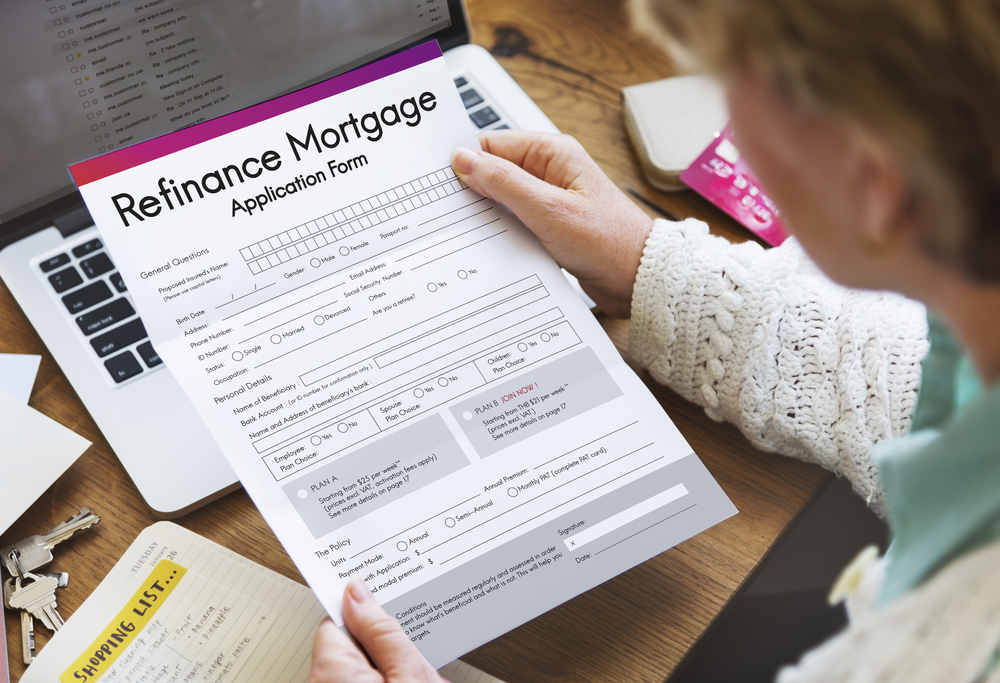FHA Loan: What You Need to Know
Whether you're already sure an FHA loan is right for you or you're still trying to figure out just what the FHA is, we've broken it all down. No need to wade through the FHA handbook. Click below and start your search for an FHA Loan!

What is an FHA loan?
An FHA loan is a mortgage insured by the Federal Housing Administration. With a minimum 3.5% down payment for borrowers with a credit score of 580 or higher, FHA loans are popular among first-time home buyers who have little savings or have credit challenges.
The FHA insures mortgages issued by lenders, like banks, credit unions and nonbanks. That insurance protects lenders in case of default, which is why FHA lenders are willing to offer favorable terms to borrowers who might not otherwise qualify for a home loan. Only an FHA-approved lender can issue an FHA-insured loan.
An FHA home loan can be used to buy or refinance single-family houses, two- to four-unit multifamily homes, condominiums and certain manufactured homes.
Specific types of FHA loans can also be used for new construction or for renovating an existing home.
» MORE: Calculate your FHA loan payment
What is the FHA?
The Federal Housing Administration — better known as the FHA — has been part of the U.S. Department of Housing and Urban Development since 1965. But the FHA actually began more than 30 years before that, as a component of the New Deal.
In addition to a stock market crash and the Dust Bowl drought, the Great Depression saw a housing market bubble burst. By early 1933, roughly half of American homeowners had defaulted on their mortgages.
The FHA was created as part of the National Housing Act of 1934 to stem the tide of foreclosures and help make homeownership more affordable. It established the 20% down payment as a new norm by insuring mortgages for up to 80% of a home's value — previously, homeowners had been limited to borrowing 50%-60%.
Today, the FHA insures loans for about 8 million single-family homes.
» MORE: Facts about FHA home loans
What are the differences between an FHA loan and a conventional loan?
It's easier to qualify for an FHA loan than for a conventional loan, which is a mortgage that isn't insured or guaranteed by the federal government.
-
FHA loans allow for lower credit scores than conventional loans and, in some cases, lower monthly mortgage insurance payments.
-
FHA rules are more liberal regarding gifts of down payment money from family, employers or charitable organizations.
-
FHA loans may involve closing costs that aren't required by conventional loans.
» MORE: Details on FHA vs. conventional loans
What is it like to get an FHA loan right now?
Although the FHA’s minimum requirements for FHA loans haven’t changed, FHA lenders seem to favor applicants with higher credit scores. More than 74% of FHA borrowers had FICO scores of 650 or above in May 2021, with an average score of 678 for FHA purchase loans, according to a report by ICE Mortgage Technology.
An April 2021 survey of real estate agents by the National Association of Realtors found that sellers were less likely to accept a bid backed by an FHA loan than one backed by a conventional loan. Reasons included seller perceptions of FHA inspection and appraisal requirements, as well as FHA down payment amounts. Together with stricter lender requirements, this may be why FHA loans were used in just 10% of single-family home and condo purchases in the first quarter of 2021, according to Attom Data Solutions, a company that provides real estate data.
On average, it took longer to close an FHA purchase loan in May 2021 than it did in May 2020 — 61 days compared to a previous average of 46 days. Conventional purchase loans, meanwhile, closed in an average of 49 days in May 2021.
» MORE: Compare today’s FHA mortgage rates
What are the types of FHA loans?
The FHA offers a variety of loan options, from fairly standard purchase loans to products designed to meet highly specific needs. Here's an overview of FHA loans commonly used to buy a house:
|
FHA Loan Type |
Benefits |
Limitations |
|---|---|---|
|
Basic Home Mortgage 203(b) |
Can be used to purchase or refinance a primary residence with a low minimum down payment. |
Can’t be used to buy a house that needs more than $5,000 in repairs. |
|
203(k) Rehab Mortgage |
Can be used to finance fixer-uppers. |
Rehab costs have to exceed $5,000, but repairs can’t take more than six months to complete. Repairs must be executed by a qualified professional. |
|
Construction Loan |
Can be used to buy land and finance building a new home. |
It’s more difficult and time-consuming to qualify for this kind of loan. |
|
Title 1 Property Improvement Loan |
Can be used for home improvements and can supplement a 203(k) loan. You can get this loan without refinancing. |
You can only borrow up to $25,000 for a single-family property (or $25,090 for mobile homes that include land) and $60,000 for a multifamily home. |
|
Energy Efficient Mortgage |
Can be used to make improvements that make the home more energy-efficient. |
The home must be professionally assessed to qualify. Improvements must be deemed cost-effective. |
FHA loan limits
No matter which type of FHA loan you're seeking, there will be limits on the mortgage amount. These limits vary by county. FHA loan limits in 2021 range from $356,362 to $822,375.
The upper limit for FHA loans on single-family homes in low-cost counties is $356,362. An example is Lucas County, Ohio, where Toledo is located. The upper limit for FHA loans in the highest-cost counties is $822,375 — San Francisco County, California, for example.
Some counties have housing prices that fall somewhere in between, so the FHA loan limits are in the middle, too. An example is Denver County, Colorado, where the 2021 FHA loan limit is $596,850. You can visit HUD's website to find the FHA loan limit in any county.
» MORE: See how much home you can afford
How to qualify for an FHA loan
You'll need to satisfy a number of requirements to qualify for an FHA loan. It's important to note that these are the FHA's minimum requirements and lenders may have additional stipulations. To make sure you get the best FHA mortgage rate and loan terms, shop more than one FHA-approved lender and compare offers.
“It's important to note that lenders may have additional stipulations.”
Credit score
The minimum credit score for an FHA loan is 500. If your score falls between 500 and 579, you can still qualify for an FHA loan, but you'll need to make a larger down payment. Again, these are FHA guidelines — individual lenders can opt to require a higher minimum credit score.
» MORE: Get your credit score for free
Though the FHA has not changed its requirements, the combined effects of the COVID-19 pandemic and recession have led many FHA lenders to raise their minimum required credit scores for FHA loans. Many lenders currently ask for a credit score of at least 620.
Nerdy tip: If your current credit score doesn't measure up, you may want to work on building your credit before you begin home shopping. Alternatively, look to lenders who specialize in FHA loans — they tend to allow minimum credit scores that are closer to FHA guidelines. These lenders may also offer manual underwriting, which can be helpful if you don't have much credit history, for example.
» MORE: See top FHA loan lenders
Down payment funds
If you've got a credit score of 580 or higher, your FHA down payment can be as low as 3.5%. A credit score that's between 500 and 579 means you'll have to plunk down 10% of the purchase price.
The good news? It doesn't all have to come from savings. You can use gift money for your FHA down payment, so long as the donor provides a letter with their contact information, their relationship to you, the amount of the gift and a statement that no repayment is expected.
Nerdy tip: Look into state and local down payment assistance programs for first-time home buyers (usually defined as someone who has not owned a home within the past three years). You may be able to find low- or no-interest loans, or even grants, that can help you pull together that down payment.
» MORE: Find first-time home buyer programs
Debt-to-income ratio
The FHA requires a DTI of less than 50, meaning that your total monthly debt payments can't be more than 50% of your pretax income. This includes debts that you aren't actively paying.
For student loans in deferment, your FHA loan underwriter will include 1% of the loan's total as the monthly payment amount. For other types of loans that you aren't currently repaying, underwriters will use 5% of the loan's total to calculate your DTI.
» MORE: Calculate your DTI
Property approval
The property you're trying to buy with an FHA loan, whether it's a house, a condo, a manufactured home or a multifamily home, has to meet FHA minimum property requirements.
The FHA requires an appraisal that's separate (and different from) a home inspection. They want to be sure the home is a good investment — in other words, worth what you're paying for it — and ensure that it meets basic safety and livability standards.
For an FHA 203(k) renovation loan, the property may undergo two separate appraisals: An "as is" appraisal that assesses its current state, and an "after improved" appraisal estimating the value once the work is completed.
» MORE: What's included in an FHA appraisal
Mortgage insurance
FHA mortgage insurance is built into every loan. When you get an FHA mortgage, you'll make an upfront mortgage insurance payment (which can be rolled into the total amount of the loan), and make monthly payments thereafter.
If you start with a down payment of less than 10%, you'll continue to pay mortgage insurance for the life of the loan. Those with 10% down payments will pay FHA mortgage insurance for 11 years.
» MORE: Compare types of mortgage insurance
How to apply for an FHA loan
Applying for an FHA loan will require personal and financial documents, including but not limited to:
-
A valid Social Security number.
-
Proof of U.S. citizenship, legal permanent residency or eligibility to work in the U.S.
-
Bank statements for, at a minimum, the last 30 days. You'll also need to provide documentation for any deposits made during that time (usually pay stubs).
Your lender may be able to automatically retrieve some required documentation, like credit reports, tax returns and employment records. Special circumstances — like if you're a student, or you don't have a credit score — may require additional paperwork.
» MORE: Detailed FHA loan requirements
What are the pros and cons of FHA loans?
Even if your credit score and monthly budget leave you without other choices, be aware that FHA loans involve some trade-offs.
Benefits of FHA loans:
-
Lower minimum credit scores than conventional loans.
-
Down payments as low as 3.5%.
-
Debt-to-income ratios as high as 50% allowed.
Disadvantages of FHA loans:
-
FHA mortgage insurance lasts the full term of the loan with a down payment of less than 10%.
-
Property must meet strict health and safety standards.
-
No jumbo loans: The loan amount cannot exceed the conforming limit for the area.
Even though the FHA sets standard requirements, FHA-approved lenders' requirements may be different.
FHA interest rates and fees also vary by lender, so it's important to comparison shop. Getting a mortgage preapproval from more than one lender can help you compare the total cost of the loan.
This Article was Publish on Nerdwallet.com








